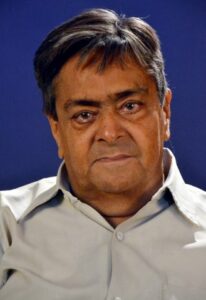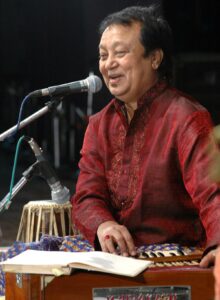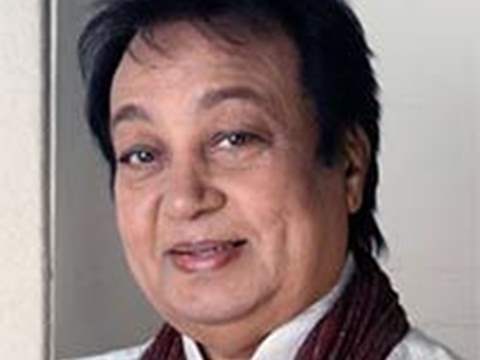
‘Naam gum jaayega, chehra yeh badal jaayege, meri awaaz hai pehchaan hai, gar yaad rahey” (My name will be lost, my face will be forgotten, but my voice will remain, if you remember it.)
These words from a famous and emotional song from the 1977 film ‘Kinaara’ was sung as a duet by Bharat Ratna Lata Mangeshkar who passed away earlier this year, and Bhupinder Singh who died earlier this week on July 18. And the lyrics by themselves convey that these two singers will never be forgotten and will live on through their songs. Bhupinder died of cardiac arrest at the age of 82 but was also suffering from covid and a suspected colon cancer. Bhupinder (6 February 1940 – 18 July 2022) was born in Amritsar in Punjab to Natha Singhji, a musician and his introducer to music. Bhupinder’s father was a stern teacher, and at one point, he detested music and its instruments.
Bhupinder started his career as a casual artist for All India Radio under the direction of Satish Bhatia. He also worked at Doordarshan in Delhi. He learnt the guitar. In 1962, music director Madan Mohan heard him at a dinner hosted by Satish Bhatia in his honor (Satish Bhatia was Producer in AIR Delhi and Bhupinder was working under him as a guitarist) and called him to Mumbai then known as Bombay.
His proficiency with the Hawaiian, Spanish and electric guitars also spread, and he became part of the famed R.D. Burman team. The Dum Maro Dum riff emerged from Mr. Singh’s instrument. “When Dev (Anand) sahib narrated the situation in his inimitable style, he said imagine smoke and clouds of heroin. Moved by his descriptions, I started playing a tune on my electric guitar, and R.D. said, this is it,” Mr. Singh once told this journalist.

Bhupinder was given the opportunity to sing the very emotional song Hoke Majboor Mujhe Usne Bhulaya Hoga alongside Mohammed Rafi, Talat Mehmood and Manna Dey in the film Haqeeqat by Chetan Anand (eldest brother of Dev Anand). A song that brings tears to the listeners eyes, it is a scene of Indian soldiers who are convinced they will die as nobody knew their whereabouts during the India-China conflict of 1972 and so all the singers had to sing it with a tinge of despair and sadness. The actors included Jayant, Balraj Sahni, and Dharmendra, among others. Bhupinder was given a solo by the renowned Khayyam in the film Aakhri Khat and this brought him into notice by other music directors.
Bhupinder’s slightly nasal voice was one of the most unique in playback singing and suited some of the actors of 1970s and 1980s. Apart from being a singer, he was an actor and a musician and played instruments in some of the iconic Hindi songs.
The mid-1970s was also the time when the angry young man films had to compete with those of the average citizen. Bhupinder’s voice could convey the pain of the common man struggling to find a niche in the big city well. Most of his songs live on because they generate the same emotions as they did in the late 70s. Being a migrant himself, he could identify with the emotional dilemma expressed in Ek Akela Is Shehar Main ( Gharaonda) or the urge to embrace life in Zindagi Mere Ghar Aana ( Dooriyan).
Outside the sublime world of Khayyam and Jaidev, Mr. Singh also struck a chord with Bappi Lahiri when he sang the irresistible ghazal, Kisi Nazar Ko Tera Intezar Aaj Bhi Hai ( Aetbaar) for him.
He also started releasing private albums wherein his first LP had three self-composed songs and was released in 1968, a second LP of ghazals wherein he introduced the Spanish guitar, bass and drums to the ghazal style, released in 1978 and his third LP titled Woh Jo Shair Tha, for which the lyrics were written by the renowned lyricist Gulzar in 1980.
He moved away from playback singing in the mid-1980s after his marriage with Bangladeshi singer Mitali Mukerji, and since then had been singing jointly for several albums and live concerts. Together they produced many ghazal and geet cassettes.
His famous film songs include “Dil Dhoondta hai”, “Do diwane shahar mein”, “Naam gum jayega”, “Karoge yaad to”, “Meethe bol bole”, “Kabhi kisi ko mukammal”, “Kisi nazar ko tera intezaar aaj bhi”, and “Ek akela is Shehar Mein”. Other songs include Duniya Chute Yaar Na Toote, Kahiya Kahan Se Aana Hua and Beete Na Bitaai Raina, Kisi Nazar Ko Tera Intezar Aaj Bhi Hai, “Thodi Si Zameen Thoda Aasman, Ek Akela Is Shaher Mein, Huzoor Is Kadar bhi na Itra ke Chaliye, Hothon Pe Aisi Baat, Karoge Yaad to Har Baat Yaad Aayegi, Kabhi Kisi Ko Mukammal Jahan nahi milta, and Zindagi Mere Ghar Aanaa. Aane Se Uske Aaye Bahar
What Bhupinder lost because of competitors was made up by his songs. A large number of his songs listed above as a tinge of sadness or nostalgia in his voice, and the voice of every man’s heartache, and this made them so unique. At the same time, he gave romantic songs like Huzoor is kadar bhi na itra ke chaliye, Raat Banoo Mein Geet Bano Tum,
In addition, he and his wife together had around ten discs. Bhupinder also gained fame by playing the guitar in films like Dum maro dum, Ek Hi Khwaab, Waadiyaan Meraa Daaman, Chura liya hai, Chingari Koi Bhadke, Chalte, Mehbooba O Mehbooba, Ambar ki ek paak surahi, and Tum jo mil gaye ho. Mr. Singh won numerous awards but he was elated only when the Sangeet Natak Akademi conferred on him its award in the ‘sugam sangeet’ (light music) category. The year has seen the departure of many important personalities of the music world. Apart from Lata and Bhupinder, India lost the eminent santoor (Kashmiri string instrument) player Shiv Kumar Sharma and Pandit Bhajan Sopori, music maestro Bappie Lahiri, playback singer Sandhya Mukherjee, and singer KK. In addition, India lost filmmaker Ravi Tandon (father of actress Raveena Tandon), filmmaker T Rama Rao, actor Ramesh Deo, and actor Salim Ghouse.
( The author is an eminent Film and TV critic. A Consultant for some media websites and print publications , he is also a visiting professor in several institutions on journalism, public relations, and cinema studies. He can be reached at bbnagpal@yahoo.com)
